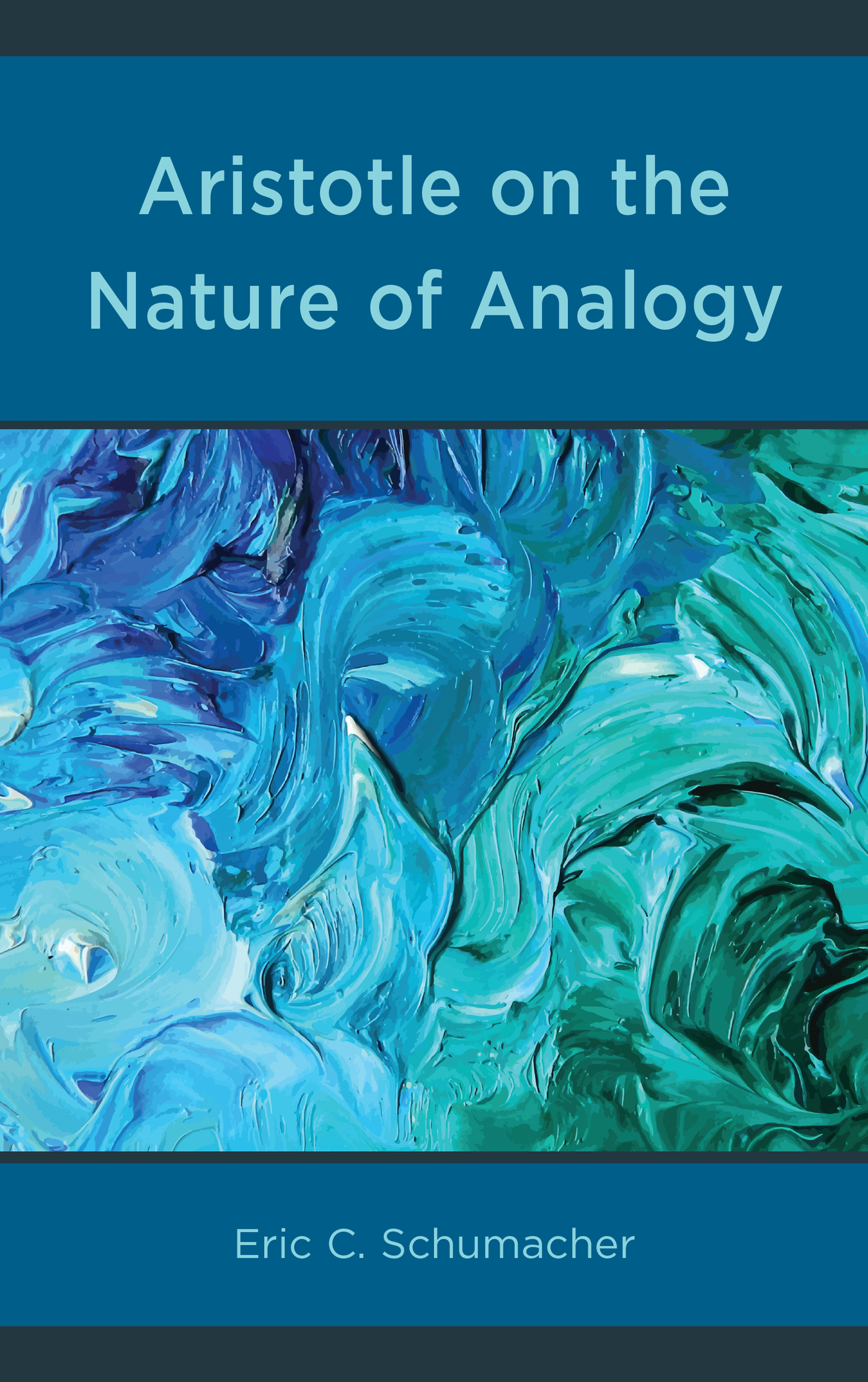Aristotle on the Nature of Analogy
Aristotle on the Nature of Analogy
By Eric C. Schumacher
LEXINGTON BOOKS
Lanham Boulder New York London
Published by Lexington Books
An imprint of The Rowman & Littlefield Publishing Group, Inc.
4501 Forbes Boulevard, Suite 200, Lanham, Maryland 20706
www.rowman.com
Unit A, Whitacre Mews, 26-34 Stannary Street, London SE11 4AB
Copyright 2018 by The Rowman & Littlefield Publishing Group, Inc.
ARISTOTLE, VOL. VIII, translated by W. S. Hett, Loeb Classical Library Volume 288, Cambridge, Mass.: Harvard University Press, First published 1936. Loeb Classical Library is a registered trademark of the President and Fellows of Harvard College.
All rights reserved. No part of this book may be reproduced in any form or by any electronic or mechanical means, including information storage and retrieval systems, without written permission from the publisher, except by a reviewer who may quote passages in a review.
British Library Cataloguing in Publication Information Available
Library of Congress Cataloging-in-Publication Data
Names: Schumacher, Eric, author.
Title: Aristotle on the nature of analogy / Eric Schumacher.
Description: Lanham : Lexington Books, 2018. | Includes bibliographical references and index.
Identifiers: LCCN 2018038543 (print) | LCCN 2018039528 (ebook) | ISBN 9780739198711 (Electronic) | ISBN 9780739198704 (cloth : alk. paper)
Subjects: LCSH: Aristotle. | Analogy.
Classification: LCC B491.A52 (ebook) | LCC B491.A52 S38 2018 (print) | DDC 169.092--dc23
LC record available at https://lccn.loc.gov/2018038543
 TM The paper used in this publication meets the minimum requirements of American National Standard for Information Sciences Permanence of Paper for Printed Library Materials, ANSI/NISO Z39.48-1992.
TM The paper used in this publication meets the minimum requirements of American National Standard for Information Sciences Permanence of Paper for Printed Library Materials, ANSI/NISO Z39.48-1992.
Printed in the United States of America
To Stacy, Tre, Aniya, and Theia
Acknowledgments
I am grateful for the trust and continuous inspiration of my family, friends, and students at Cheyney University of PA. I wish to thank Claudia Baracchi for her guidance on an earlier version of this work and for bringing to life the matter of Aristotle.
My gratitude to a generous grant from the Pennsylvania State System of Higher Education Faculty Professional Development Council.
Thanks to the gracious cooperation of the Peripatetic Press, the passages from Aristotles Physics and Metaphysics were reprinted in preparation of this text. Thanks also to the gracious cooperation of Harvard University Press for use of passages from On the Soul from Aristotle, VOL. VIII, translated by W. S. Hett, Loeb Classical Library Volume 288, Cambridge, Mass.: Harvard University Press, First published 1936. Loeb Classical Library is a registered trademark of the President and Fellows of Harvard College.
Chapter Introduction
Course of this Study
The essential goal of this book is to establish the structure of analogy in Aristotles thought. Traditionally, the Aristotelian analogy has been described in one of two ways. One way describes analogy as a mathematical formation which compares four things, for example, A is to B as C is to D. Here, analogy is simply a mathematical term that can say little or nothing about the nature of the things being compared. As a mathematical term, analogy can only characterize the way certain things stand in comparison with certain other thingsanalogy compares different things mathematically and analogy can do nothing more. The other traditional way of describing analogy in Aristotle points to the linguistic idea that explains how different uses of a particular word refer back to some common and general understanding of that word. For example, healthy habits, healthy food, and a healthy attitude refer to specifically different things while all correlating back to some common understanding of health. Here, the Aristotelian analogy is thought to offer a different type of comparison, one that compares individual uses of a term with its generally understood meaning. This is not a mathematical comparison of four things but rather a reference to the specific applications of a words broader meaning. These two traditional descriptions outline the course for our study. The attempt to establish the structure of the Aristotelian analogy will thus take shape through a critical analysis of these two approaches.
Specifically, it will be argued that the structure of analogy lies at the root of logos. Logos is a term that captures a beings addressability. That is, logos refers to the intelligible organization of a thing gathered in language, a definition, an argument, a storythe words into which speakable things are put. Logos sometimes gets translated as form or formula. Throughout our study, the term logos will remain untranslated. One reason logos will not be translated is because a certain relationship the term holds with analogy will be developed. Aristotles Physics Alpha is the place where the relationship between logos and analogy emerges. In this text, Aristotle discusses the principles of becoming. As Aristotle develops his argument against the earlier thinkers, the structure of analogy comes into sight. Logos is the first of Aristotles principles of natural becoming. The other two principles are privation (stersis) and underlying substance (hypokeimenon). These other two principles account for the always silent features of logos, the silent features of the addressable thing that is in a constant state of moving and be-coming. As we will see, these silent features enable the addressable thing to come into being in the first place. As a result, these silent (a-logos) features are inseparable from logos but require a different form of addressability since these features always remain silent. This is to say, as beings emerge in their addressable form (as logos) their silent features emerge as well. At the root of addressability then is this different form that addresses the beings silent features. This different form of addressability is analogy. The structure of analogy that will be developed throughout our study reveals that analogy functions as the root of logos. Therefore, we will argue that logos is radical analogy.
The structure of analogy will come about along with the three principles of natural becoming from Physics Alpha. The structure of analogy then is three-fold insofar as it offers a form of addressability that includes the three principles of becoming. The traditional mathematical approach to the Aristotelian analogy compares beings as they are perceivable and directly addressable. The other traditional approach seems to compare beings in their
addressable form with an underlying meaning of that term which is more generally understood. To put these two traditional approaches in terms of Aristotles three principles of natural becoming, the mathematical approach focuses on the being qua logos while the other correlative approach focuses on the being in reference to its underlying substance (hypokeimenon). The structure of analogy that will be argued for throughout our study will focus less on logos and hypokeimenon and more on the other principle of becoming, stersis. Aristotle seems to give hypokeimenon a privileged position among the three principles since it accounts for unqualified being and thus can be understood as potentiality in the highest degree. Unqualified being refers to that which remains the same throughout change, for Aristotle. As a seed becomes a plant, some individual thing is undergoing change and this thing entails all of the potentiality of that seed. As such,
Next page
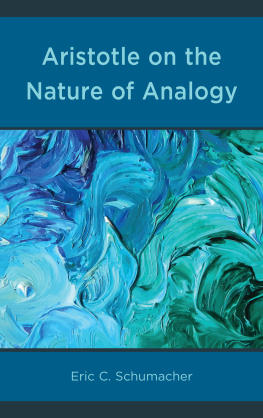
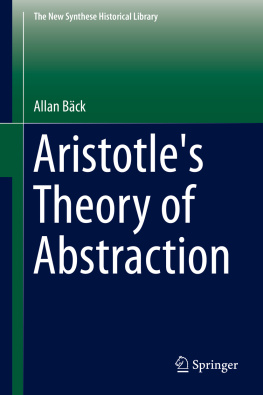
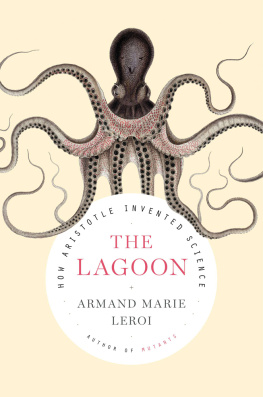
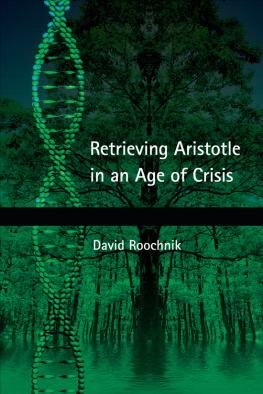
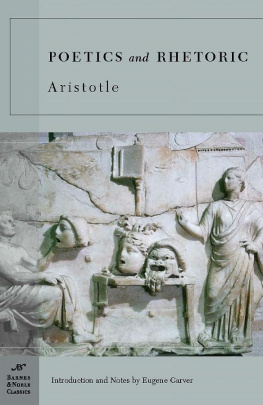
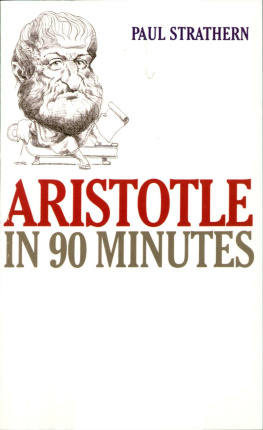
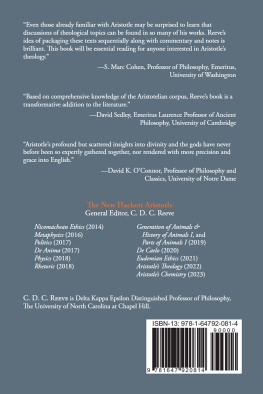
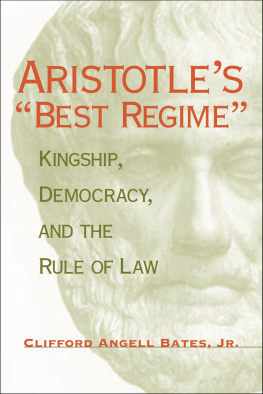
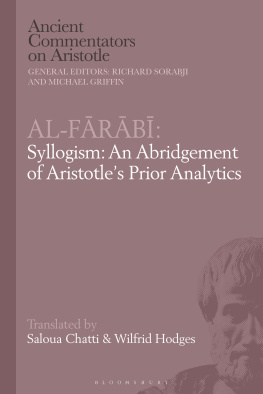

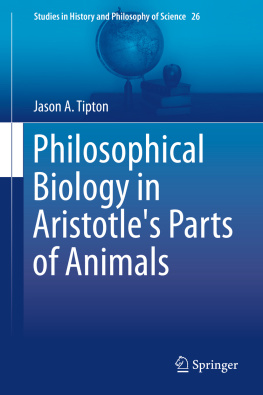
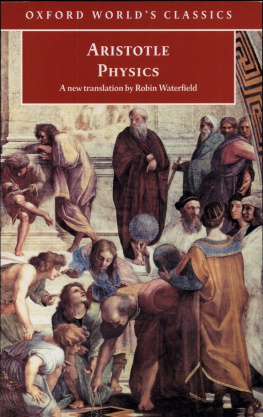
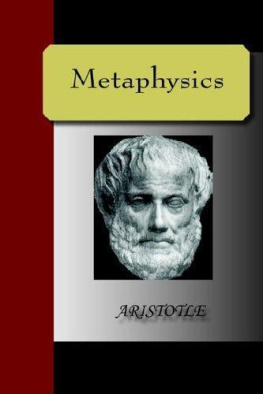
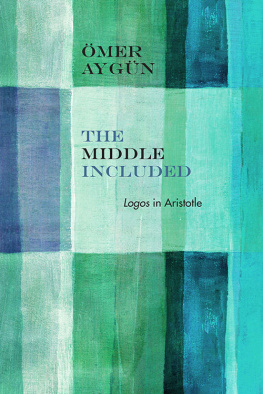
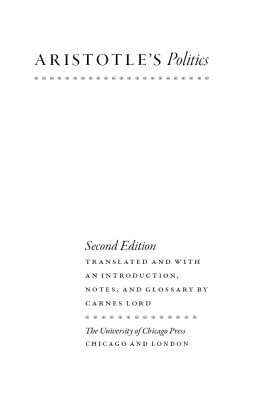
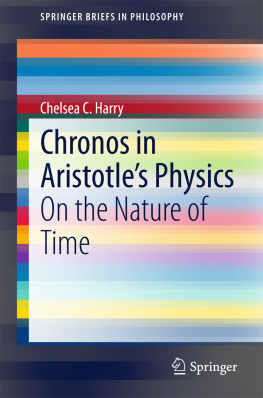
 TM The paper used in this publication meets the minimum requirements of American National Standard for Information Sciences Permanence of Paper for Printed Library Materials, ANSI/NISO Z39.48-1992.
TM The paper used in this publication meets the minimum requirements of American National Standard for Information Sciences Permanence of Paper for Printed Library Materials, ANSI/NISO Z39.48-1992.